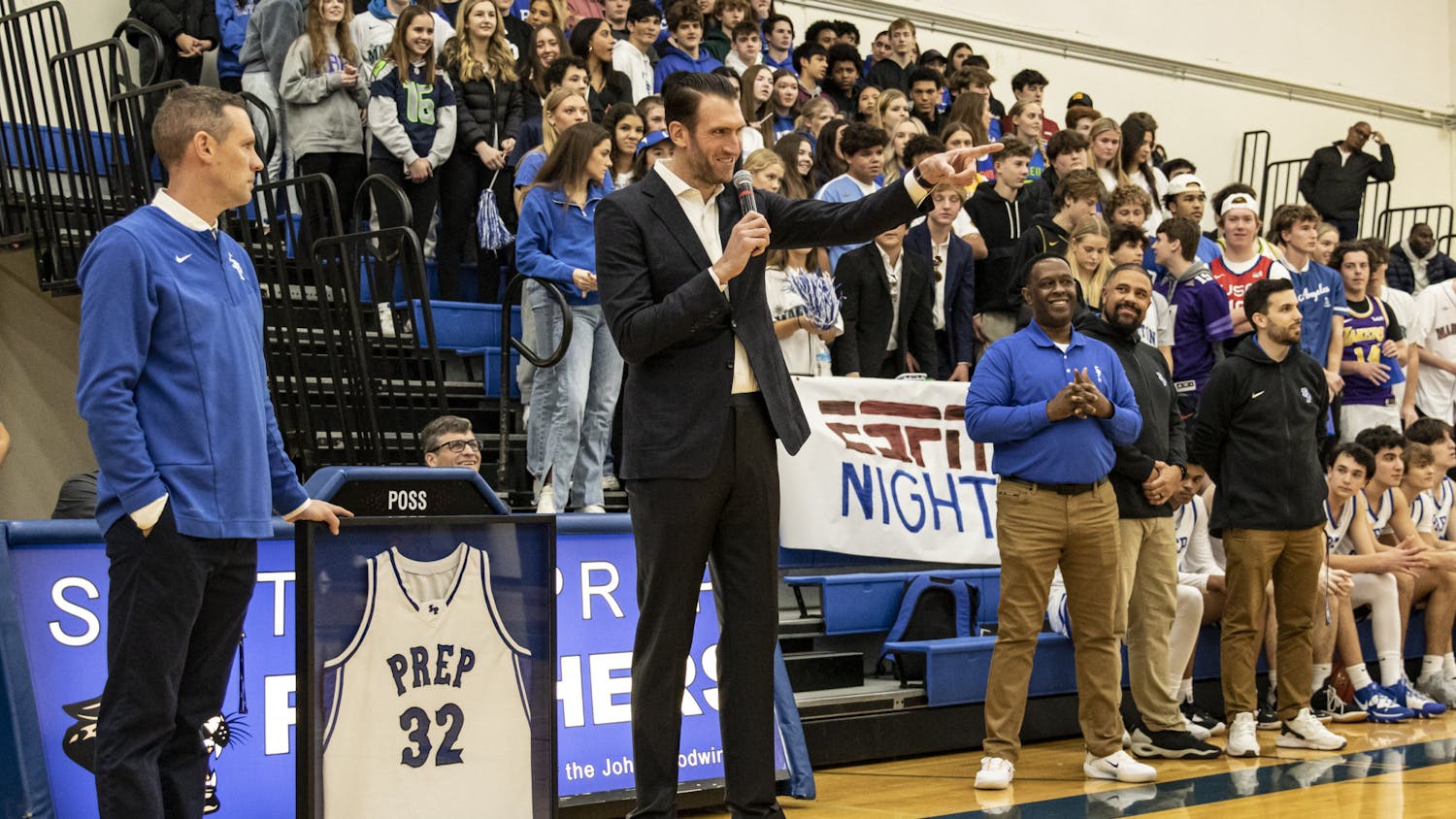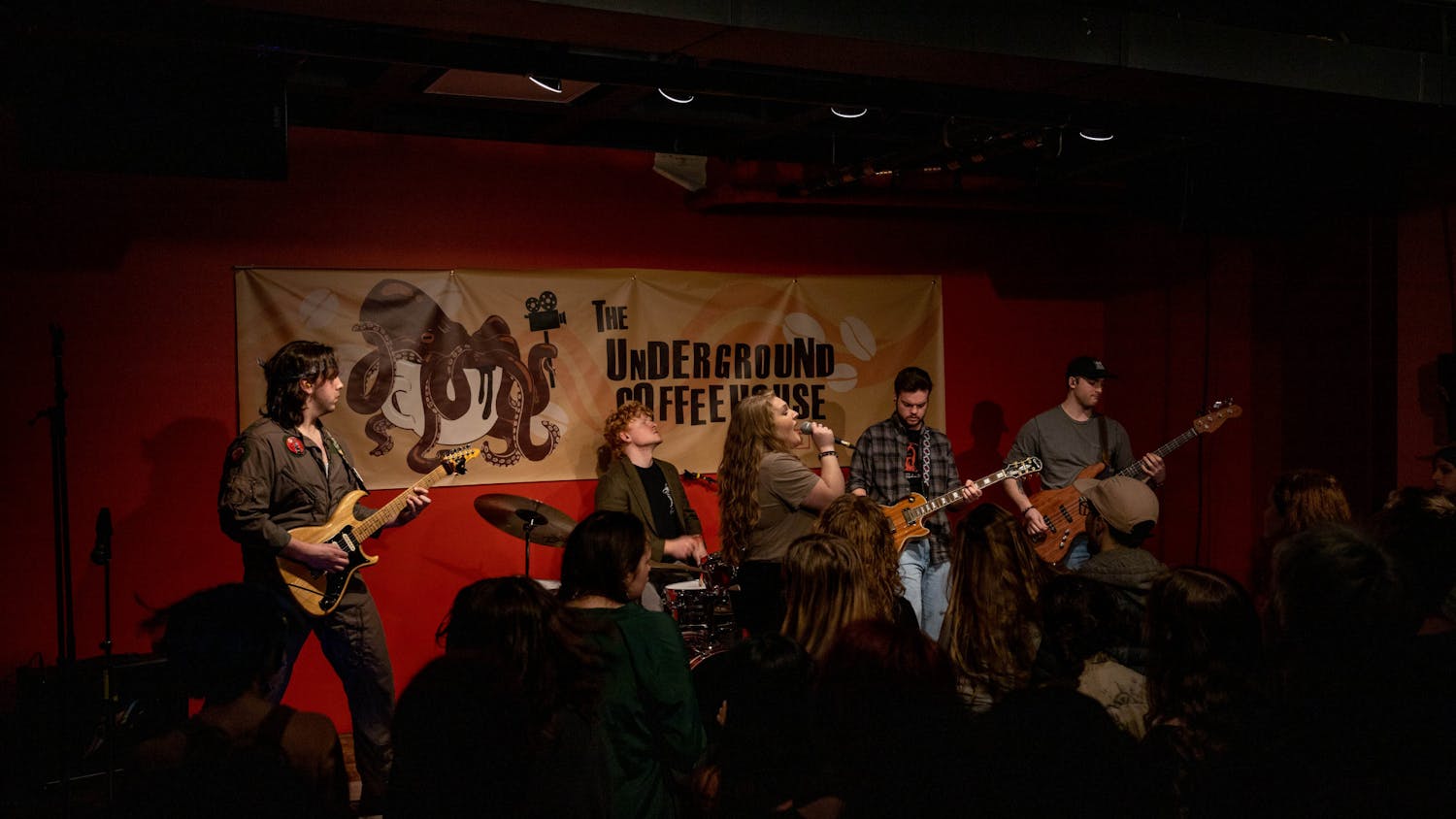The majority of intramural sports games at Western Washington University start anywhere from 8 p.m. to 11 p.m. on school nights, making it difficult for students to wake up for classes the following day.
Malea Moy, a freshman who is on both the intramural volleyball team and varsity rowing team, has rowing practice starting at 5 a.m. One of her least fond memories of intramural volleyball is getting up around 4 a.m. the day after an 11 p.m. game.
“It was not a good day to say the least,” Moy said.
Junior Jason Wood is currently a part of both Western’s intramural soccer team and golf club. Wood said each intramural sports team decides when their practices are held. However, games are at a set time and usually held once or twice a week. Most soccer games start anywhere from 8 p.m. to 11 p.m.
“It's a little exhausting,” Wood said.
For Wood, being active that late makes it hard to go to bed.
“I get home and my heart is still racing, and I can’t go to bed till 1 a.m. or 2 a.m., and I gotta wake up in six hours,” Wood said. “In class, I'll be yawning and groggy.”
Late games during winter quarter are especially challenging due to the weather.
“You just freeze to death,” Wood said. “It’s like 20 degrees.”
The one time Wood played an intramural soccer game during winter quarter, the whole team froze.
“No one wanted to run. Even the other team was like, ‘We should just forfeit this.’” Wood said.
Alex Couckuyt is part of an intramural volleyball team. When they lose sleep after a game day, it's hard for Couckuyt to get out of bed even when they set multiple alarms.
“I appreciate my sleep,” Couckuyt said. “I know a lot of college students pull all-nighters and stuff like that, but I really appreciate my sleep and so it's tough to be able to get up in the morning.”
Couckuyt agrees with Wood that it is difficult to wind down after a game.
“After volleyball games or after any sort of game where you’re running around, it's really hard to settle down, especially as young adults,” Couckuyt said.
Ioan Browne plays for two separate intramural soccer teams. He has games on Mondays and Wednesdays each week. His Wednesday games start at 11 p.m. and end around 12:30 a.m. He has a 9 a.m. class every Thursday.
“Especially when you have early classes the next day, you kinda just have to jump straight into bed and if you have a huge homework schedule for that night, you really got to cram it in before the game,” Browne said.
Having late nights twice a week takes a toll on his schoolwork.
“It's a pretty big chunk out of my night when I would typically be doing homework,” Browne said. “Me and my teammates complain all the time about the 11 p.m. games. They are so awful to go to sometimes.”
Browne mentions how the late games affect players’ performances.
“Playing that late at night really does affect the way that you play because everyone is so tired by that time and kind of out of it,” Browne said. “You don’t actually play to the best of your abilities.”
Graduate student Ellie Potts is finishing off her fifth year at Western while playing intramural volleyball. According to Potts, some students miss games because they have an early class the next day.
“It's definitely affected whether I decide to play or not depending on what time games are,” Potts said.
Potts also avoids missing games and said doing so can let the team down.
Intramural Sports Coordinator Lucy Caples has been pushing for earlier start times since she started working at Western two years ago.
“The reason that all our games are after 8 p.m. is because of a lack of field/court space,” Caples said in an email.
Varsity athletics gets first choice on all playing space, then sports clubs get their pick and finally intramural sports are stuck with whatever times are left over.
“All of our league sports that happen on weekdays start at 8 p.m.,” Caples said. “Sunday leagues normally start after 2 p.m.”
Intramural sports often do not often have access to the Wade King Student Recreation Center courts due to wanting to allow as much open gym space as possible.
“It affects all the participants and most of my staff,” Caples said. “Especially with the budget cuts happening across all departments, I do not see the university wanting to spend money on building more fields/courts.”
Caples doesn’t see Western moving up intramural game times any time soon either.
“The only way this could happen is if intramural sports moves higher up on the priority list for field/court space or if the university builds more field/court space. Otherwise, there is nothing that can be done,” she said.
Out of the four schools Caples has worked at, Western has been the only school to put intramural sports so far down on the priority list and hold games so late.
“Our timing works for some people but not for others,” Caples said. “Many of my staff are exhausted by the end of the quarter, and I wish there was a way to move us earlier, if not only to give my staff, who often work four to five days a week, a break.”
Wood and Moy would prefer to have games start anytime between 5 p.m. and 7 p.m. Browne and Wood agree that it would be nice to see a weekend where people could play mid-day.
“It would be much appreciated to the people that are playing,” Wood said.
Potts said she wishes the administration would ask for student input.
“I think the best solution would be asking students when they want to play,” Potts said.
Although it is difficult to have games from 8 p.m. to 11 p.m. on school nights, the community aspect of intramural sports makes it all worth it for students. Wood enjoys meeting people during games as well as the inclusiveness of intramural sports. His team is made up of a bunch of his friends. The minimum an intramural team needs to play in a game is seven players, but you can play a team that has 20 people on it.
“The times where it's like seven of us and we know we’re screwed are very fun. You're just doing things that are stupid and fun,” Wood said. “When you’re out on the field, it's fun to run around and talk to the other people out there.”
Moy enjoys the competition during games, and Potts likes being able to see her teammates grow in the sport.
“Seeing everyone improve over that amount of time has been really cool,” Potts said.
She has been playing volleyball with the same group for two or three years now.
“Building a more supportive network through playing intramural sports has been amazing. I've met some really great people. Honestly, it revitalized my love for soccer because it's just enjoyable,” Browne said. “I’m just happy to be playing with my friends and having a really fun time.”
Malia Fraser (she/her) is a sports reporter for The Front. She is studying journalism and environmental studies. In her free time, she loves to run and take care of her many plants. You can reach her at maliafraser.thefront@gmail.com.






